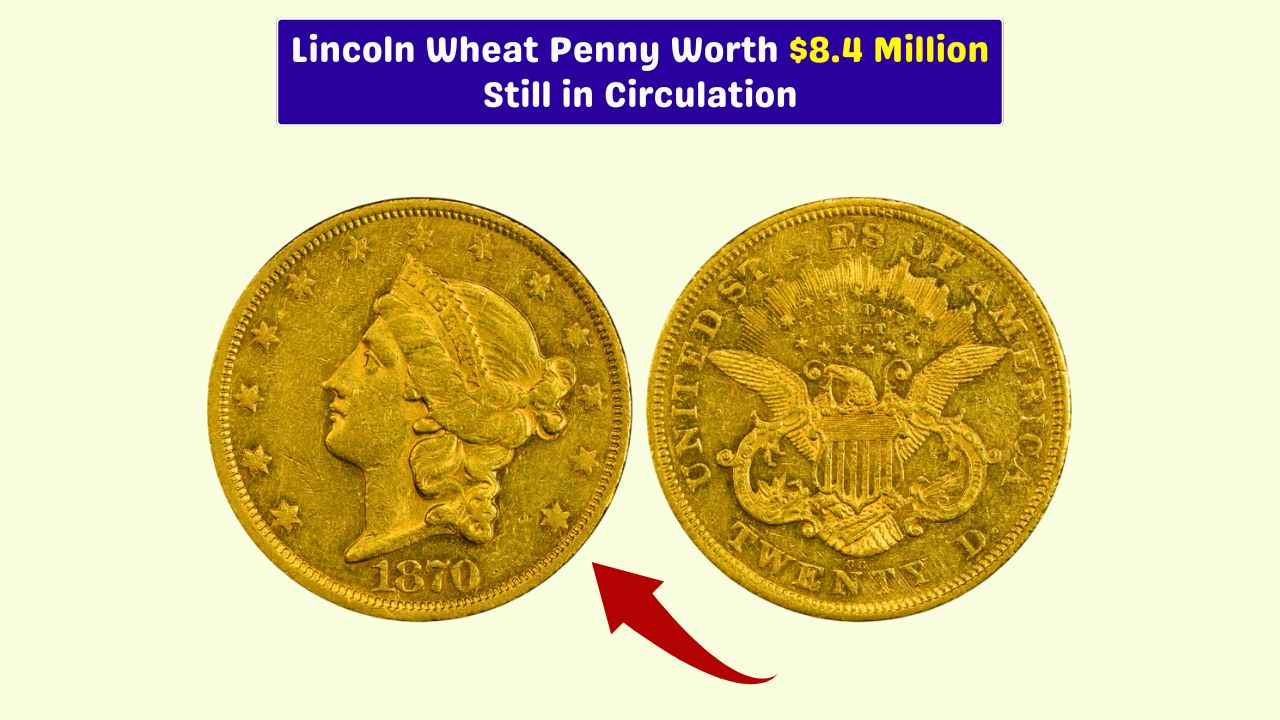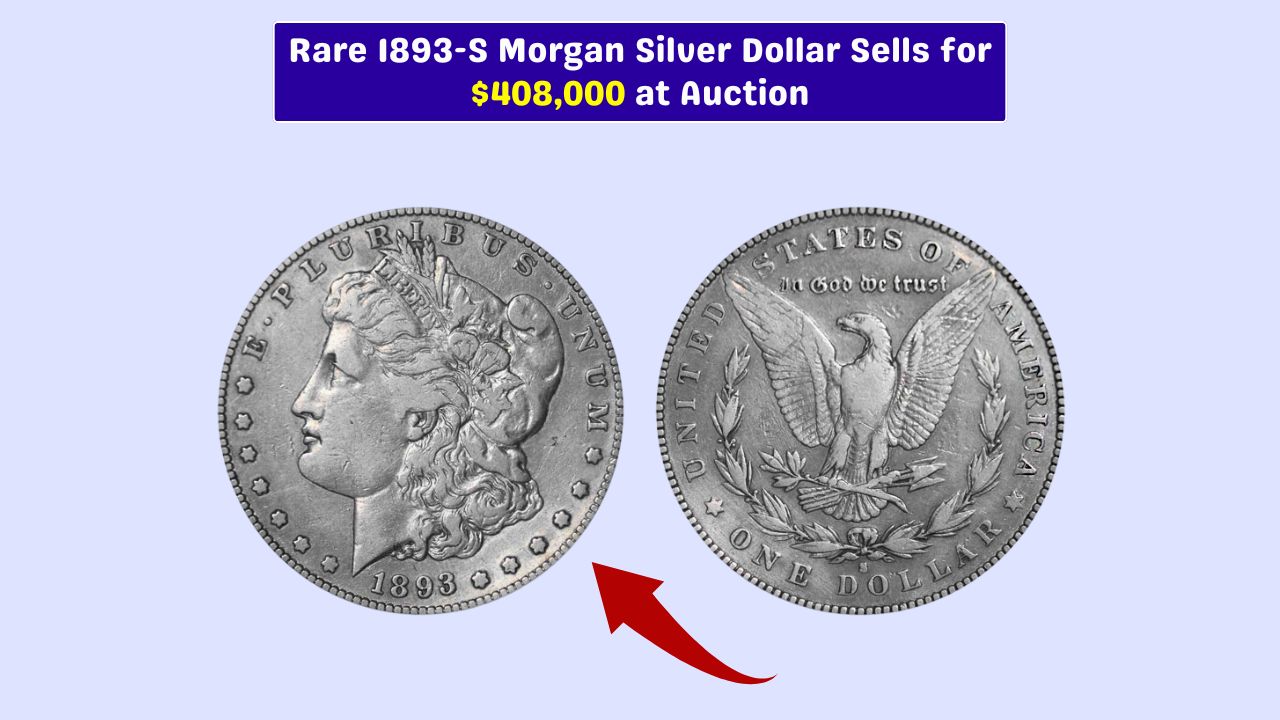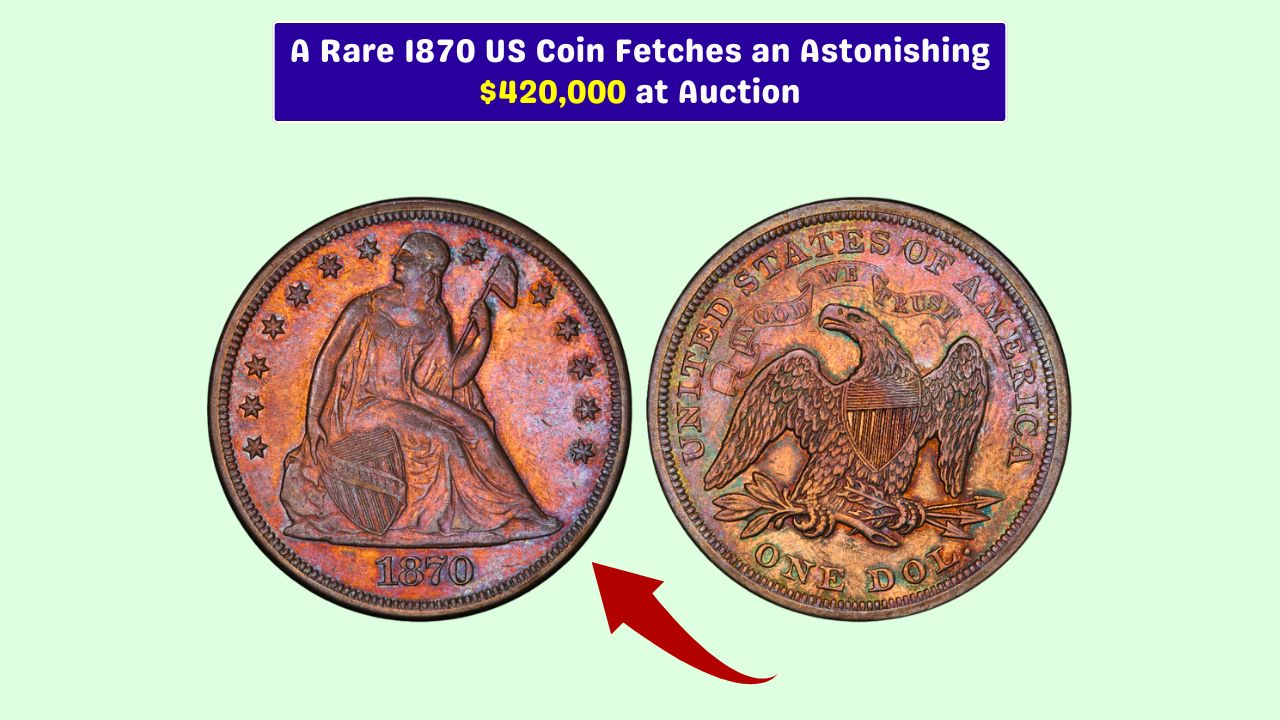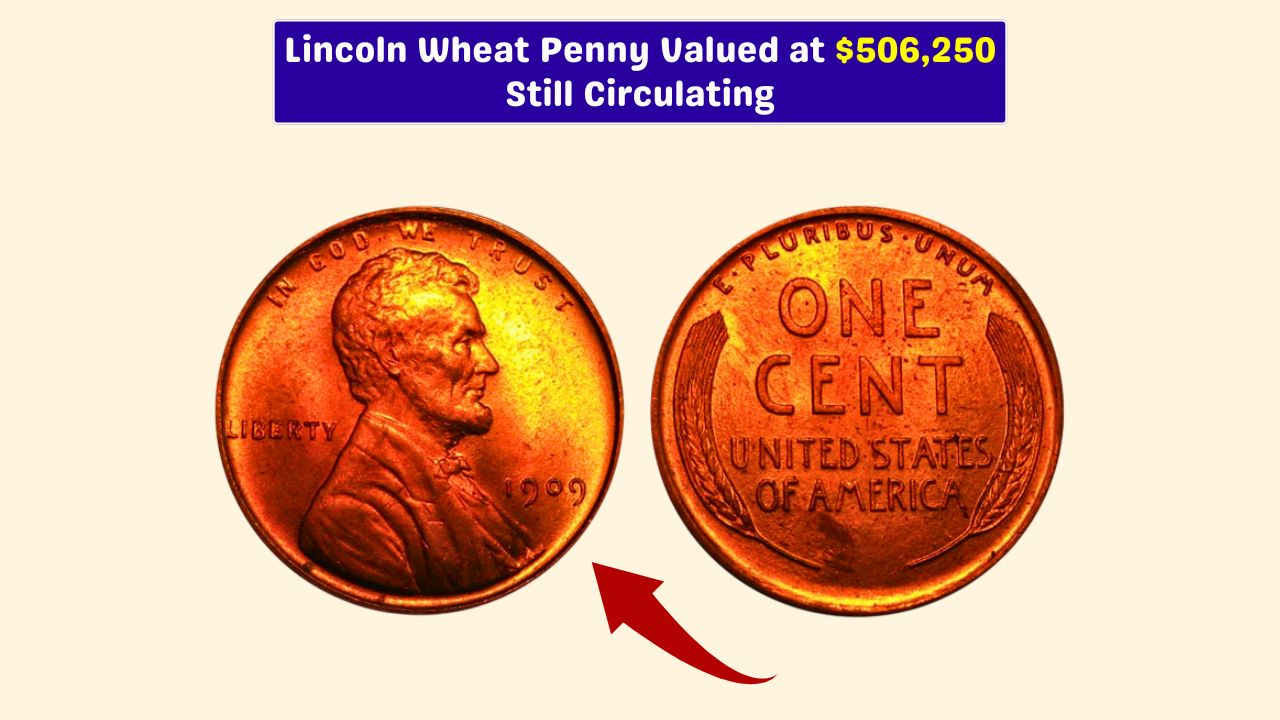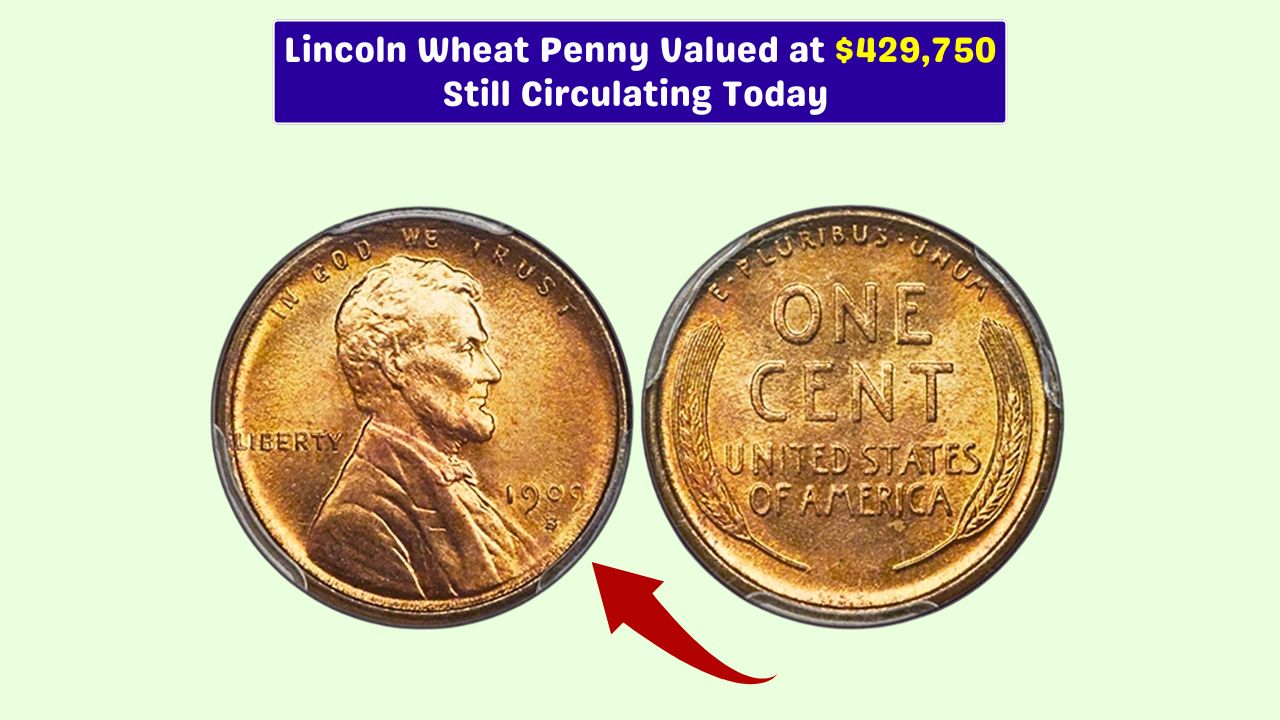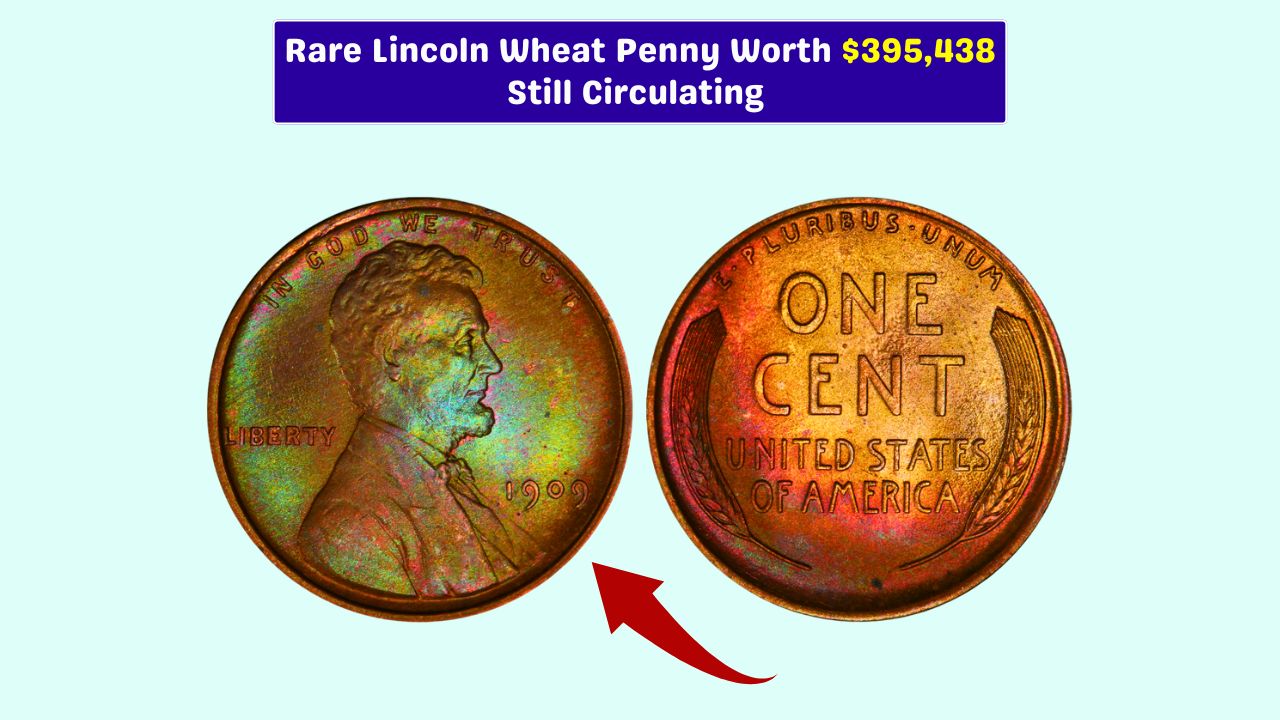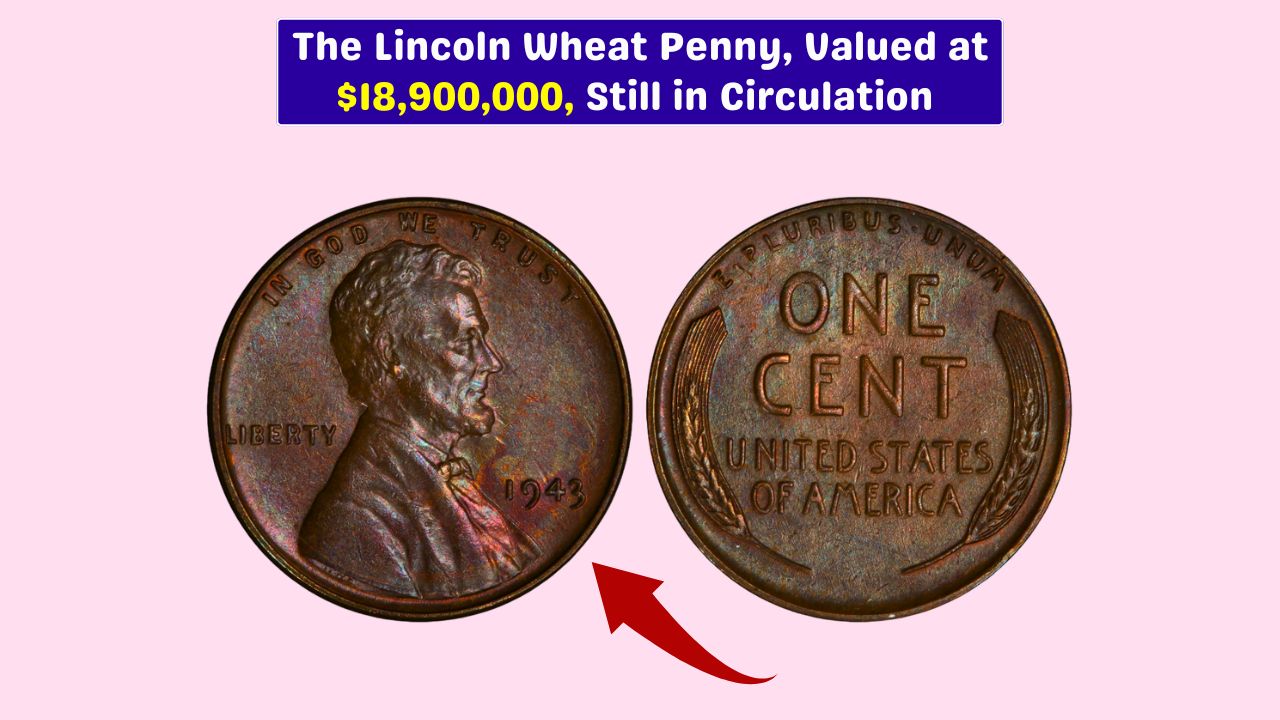Finding a small fortune tucked away in your pocket change might sound like something out of a movie — but for some lucky folks, it’s happened. In fact, one particular coin, a humble Lincoln Wheat Penny, has fetched an eye-watering $8.4 million. And believe it or not, there’s a chance it could still be floating around out there.
Let’s take a look at what makes this little penny so valuable — and how it might just turn up when you least expect it.
Origins
First minted in 1909 to mark the centennial of Abraham Lincoln’s birth, the Lincoln Wheat Penny features his profile on the front, and on the back? Two simple wheat stalks — giving rise to its nickname.
These pennies were minted until 1958. While most of them are still only worth a cent or two, a few rare versions — due to mistakes or unusual materials — have become collectors’ gold, fetching thousands or even millions.
Rarity
Now, the $8.4 million penny in question? It’s a 1943 Bronze Lincoln Wheat Penny. Here’s the twist: during World War II, copper was needed for military supplies, so the U.S. Mint started making pennies out of zinc-coated steel — giving them a silvery look.
But somehow, a few bronze blanks from 1942 slipped through the cracks and were used by accident.
That mix-up led to a handful of extremely rare bronze pennies being produced in 1943. Because of their accidental creation and pristine condition, they’ve become legendary — and one was sold for a jaw-dropping $8.4 million.
Circulation
Here’s the wild part: these rare pennies might still be out there. Sitting in someone’s old change jar, tucked into a drawer, or handed over as a “lucky coin” by a well-meaning relative.
Most people don’t even think twice about pennies — and that’s exactly why this hidden treasure could be right under your nose.
Checklist
Think you might have one? Here’s a quick rundown of how to check:
| Step | What to Look For | Why It Matters |
|---|---|---|
| 1 | Check the year: 1943 | Only 1943 bronze versions have sky-high value |
| 2 | Look at the color: brownish | Silver = steel (common), brown = bronze (rare) |
| 3 | Use a magnet | Steel sticks, bronze doesn’t |
| 4 | Confirm with an expert | If it’s bronze and not magnetic, get it verified |
Even if it’s not the $8 million jackpot, other Lincoln Wheat Pennies — like the 1909-S VDB or 1914-D — can still bring in hundreds or thousands.
Auctions
Wondering what kind of prices these coins fetch? Here’s a quick glance at some of the top coin sales in 2024:
| Rank | Coin Description | Grade | Price (USD) |
|---|---|---|---|
| 1 | 1943 Bronze Lincoln Wheat Penny | PCGS MS63 | $8,400,000 |
| 2 | 1652 NE Threepence | PCGS XF45 | $2,520,000 |
| 3 | 1870-CC Liberty Head Double Eagle | PCGS AU55 | $1,440,000 |
| 4 | 1850 Baldwin & Co. $10 | PCGS MS63+ | $1,260,000 |
Coins like these don’t just carry history — they’ve become high-value investments. In some cases, they’ve outperformed stocks, real estate, and even gold.
Dealers
Think you’ve found something special? There are expert dealers all across the country who can help, especially in places like:
- Arkansas, Alaska, Arizona
- New York, North Carolina, Kentucky
- Pennsylvania, Oregon, Massachusetts
Just search for “[Your State] Rare Coin Dealers” or consult official numismatic directories to find certified experts.
At the end of the day, treasure doesn’t always come in a treasure chest. Sometimes, it’s hiding in plain sight — copper-toned, worn from years of circulation, but worth more than you could imagine.
So next time you’re counting your change, give those pennies a second look. You never know — the next big find could be sitting right in your palm.
FAQs
How much is a 1943 bronze penny worth?
It can be worth up to $8.4 million if verified and graded.
How can I tell if my 1943 penny is bronze?
Check color, test with a magnet — bronze won’t stick.
Where can I sell rare coins?
Visit certified coin dealers or online auction houses.
Do all 1943 pennies have value?
Most are steel and common; only bronze ones are rare.
Can I find valuable coins in circulation?
Yes, rare coins occasionally show up in everyday change.
